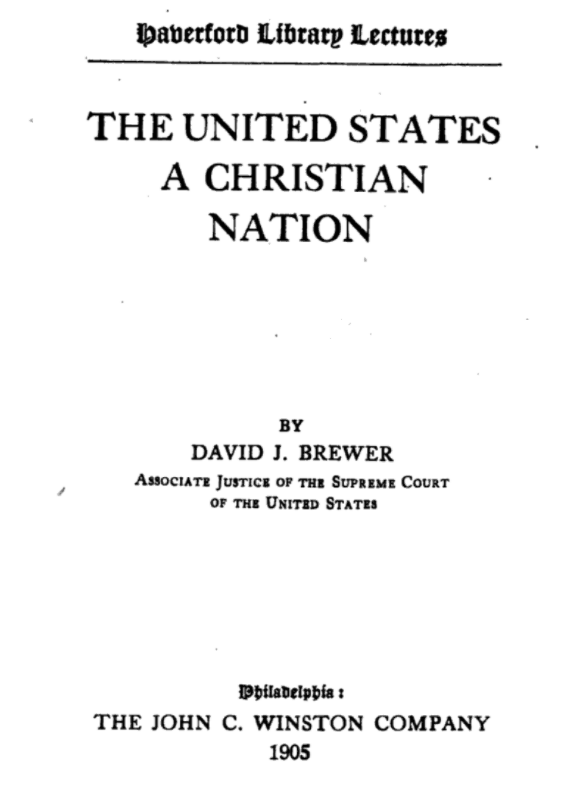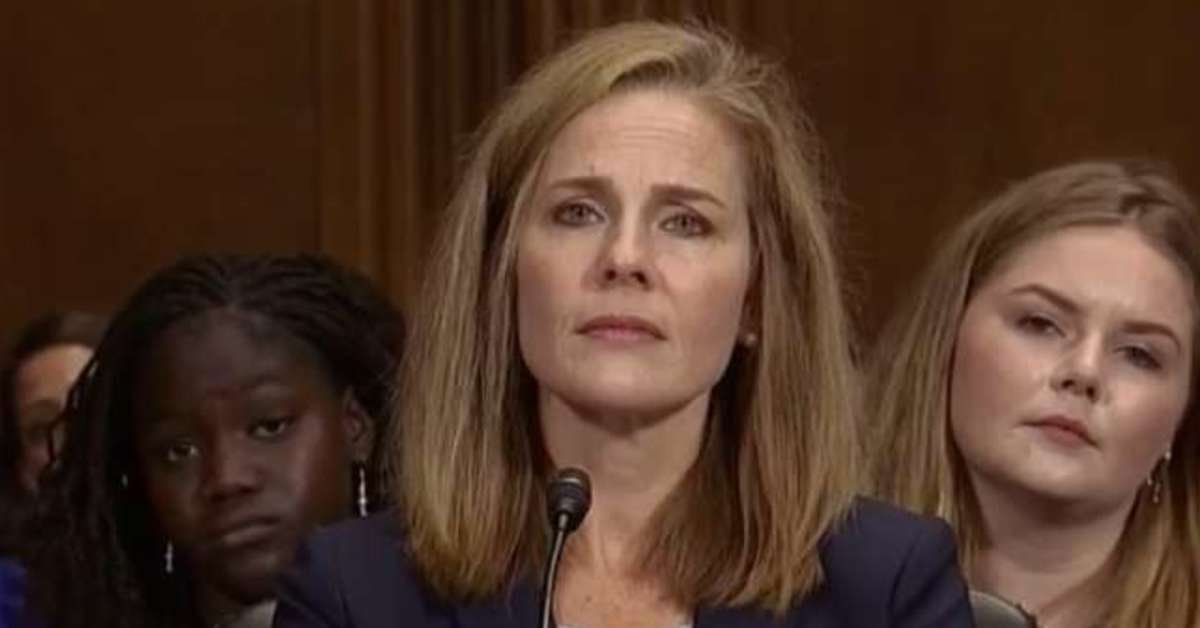
Christian Hercules is way off here.
The Supreme Court did not determine or declare that we're a Christian nation. It said so in dicta: an unimportant aside not relevant to the case's holding.
The case involved a nativist law similar to Trump's Muslim ban. Here's what happened:
The Supreme Court did not determine or declare that we're a Christian nation. It said so in dicta: an unimportant aside not relevant to the case's holding.
The case involved a nativist law similar to Trump's Muslim ban. Here's what happened:
https://twitter.com/ksorbs/status/754282843916890112
Congress passed the Alien Contract Labor Law (or Foran Act) in 1885. It said businesses couldn't sponsor foreign laborers (have them immigrate and then work for the companies). It was an extension of the racist Chinese Exclusion Act of 1882. 

The court ruled that the law did not prevent churches from contracting to bring pastors from other countries to minister to their congregation. That’s it. It was an issue of statutory interpretation. 

The court did not declare (i.e., it did not hold, but only stated in dicta) that this is a Christian nation. The opinion, written by Justice David Brewer, makes this statement, but it is not really relevant to the case or holding.
Here's the passage:
Here's the passage:

Brewer went way out of his way in the case and recited a lot of bad history to bolster the point. All of it unnecessary.
But coming from a a devoutly religious son of a Congregationalist minister-missionary and former Sunday school teacher, the claim shouldn't be too surprising.
But coming from a a devoutly religious son of a Congregationalist minister-missionary and former Sunday school teacher, the claim shouldn't be too surprising.

Brewer caught some flak for this line because it's wrong. The Constitution separates state and church, prohibits religious tests, draws its power from the people instead of a deity, and never once mentions a god. All of that was revolutionary and original to the document. 

So Brewer felt compelled to explain himself. He gave a lecture that became book. He wanted to clear up what exactly he meant in the lines that Christian Hercules focused on: The United States A Christian Nation.
patheos.com/blogs/freethou…
patheos.com/blogs/freethou…

In it, Brewer clarifies what he meant, asking "But in what sense can it [the United States] be called a Christian nation? Not in the sense that Christianity is the established religion or that the people are in any manner compelled to support it. On the contrary..." 

So we are not a Christian nation in any meaningful way. Quite the contrary says Brewer.
And the argument he does make in this direction falls short, as I detail in The Founding Myth, chapter 5.
a.co/d/a59fCqy
And the argument he does make in this direction falls short, as I detail in The Founding Myth, chapter 5.
a.co/d/a59fCqy

Brewer relies mostly on our pre-constitutional, colonial history–that settlers were religious, some on religious missions. When it comes to actually showing that our government and laws are substantively based on Christianity, Brewer demurs: 

Brewer claims he “could show” something beyond most Americans being Christian. He claims he can show a deep influence on our laws, but if he could have, he would have. Many have tried to show that our Constitution and laws are Christian or biblical, but it simply cannot be done.
In fact, we find that many of the "laws of Moses," such as the Ten Commandments, are thoroughly un-American. The first few commandments (depending on which set and which interpretation) actually violate founding American values like free speech and the free exercise of religion.
Hell, the Ten Commandments promise to punish innocent children, grandchildren, great-grandchildren, and great-great-grandchildren if their parents commit the "crime" of exercising the religious freedom guaranteed by our First Amendment. Hard to imagine a more un-American rule... 

So no, America is not a Christian nation; the Supreme Court did not declare it to be; and to the extent the court did, the authoring justice retracted it.
🇺🇸America will never be a Christian nation because the moment it becomes a Christian nation it will cease to be America.🇺🇸
🇺🇸America will never be a Christian nation because the moment it becomes a Christian nation it will cease to be America.🇺🇸
• • •
Missing some Tweet in this thread? You can try to
force a refresh



